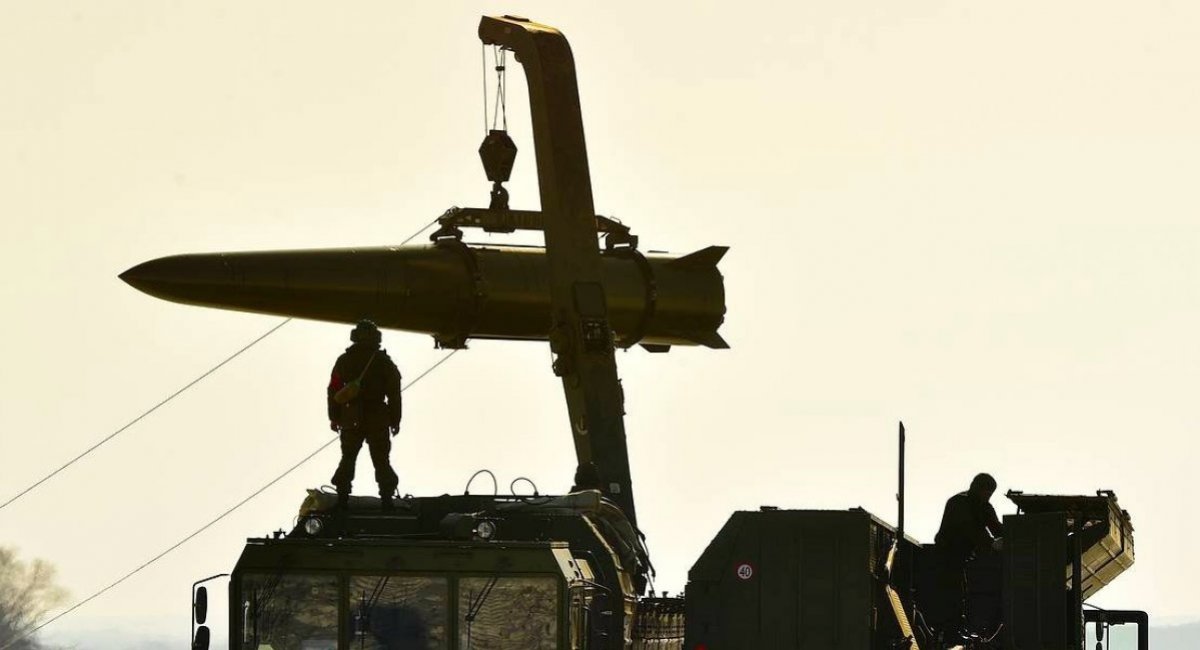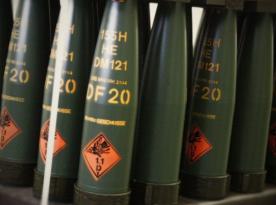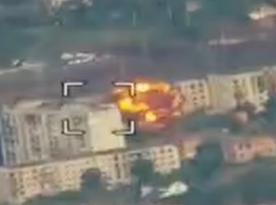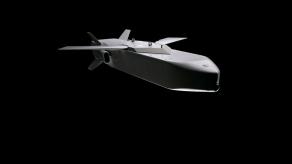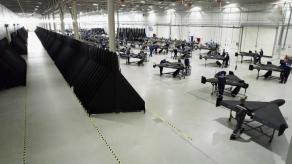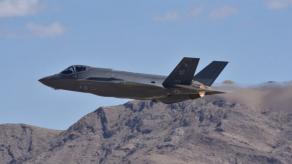Satellite imagery has revealed significant expansion and refurbishment efforts across several russian defense enterprises involved in the production of solid-propellant motors for guided missile systems, a study by the International Institute for Strategic Studies (IISS) shows.
These efforts are focused on systems such as the Uragan and Tornado-S multiple rocket launcher systems (MRLS), S-300 and S-400 air defense missiles, 9М723 ballistic missiles for the Iskander short-range ballistic missiles (SRBM), and various intercontinental ballistic missiles (ICBMs) equipped with nuclear warheads.
Read more: Why russia Deploys its Tu-160 Bombers for the First Time in 550 Days
The IISS detailed these findings in a recent publication on its Military Balance blog. Defense analyst Fabian Hinz highlighted evidence of ongoing expansion at several important sites.
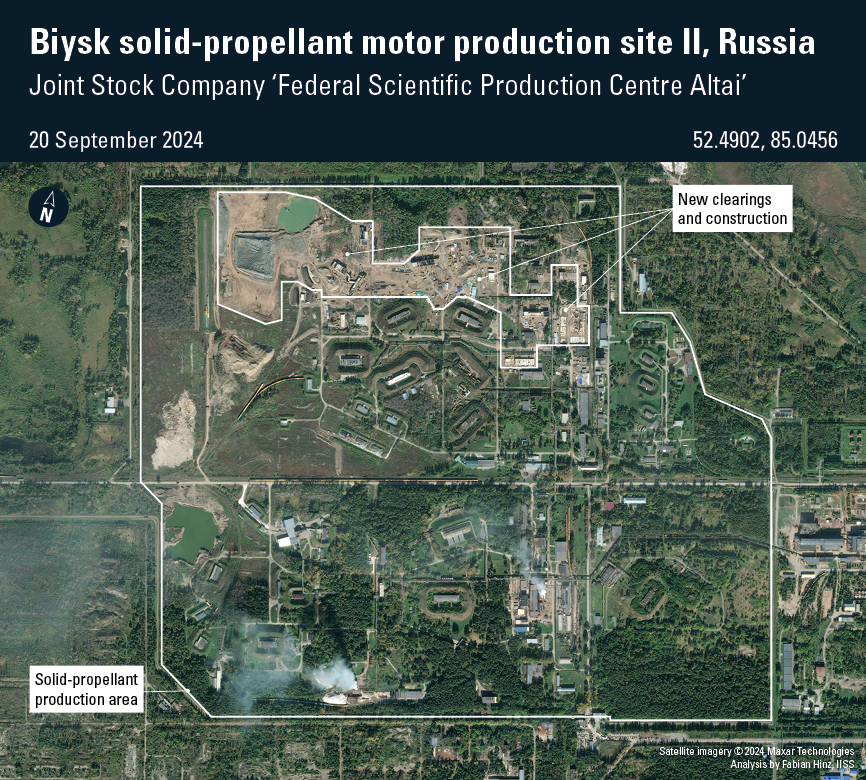
Among the most notable developments is the addition of new structures at the Altai Research and Production Center in Biysk, Western Siberia. The russians themselves recognize that this facility focuses on "various high-energy compounds for the defense industry."
IISS data suggests that it has been involved in the production of R-30 Bulava submarine-launched ballistic missile and the land-based RT-2PM Topol.
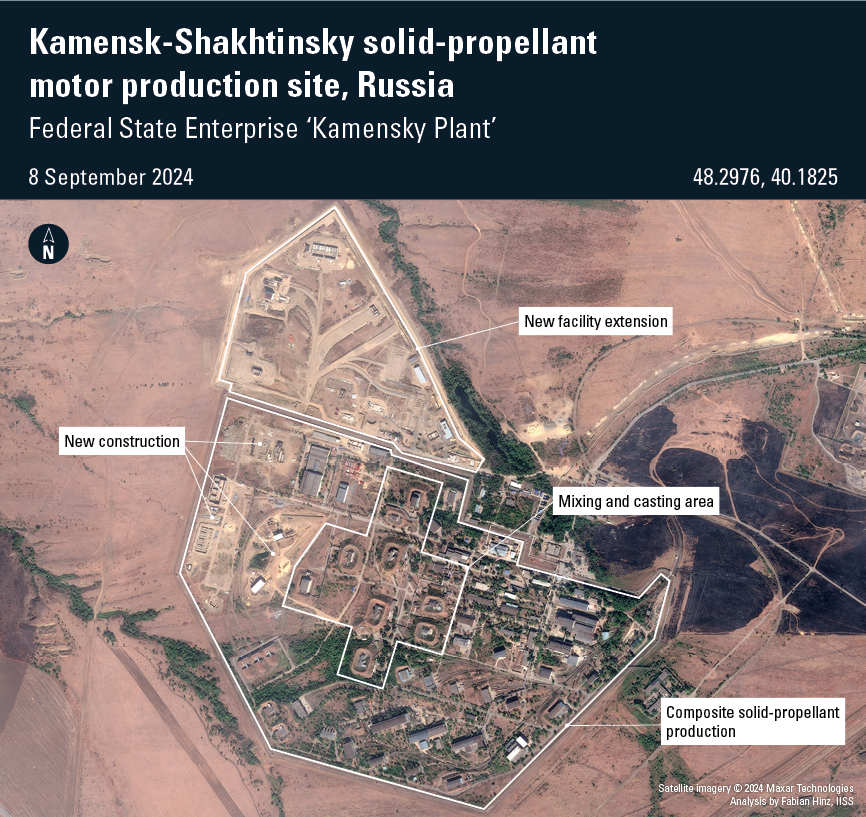
Further satellite evidence shows similar activity at the Kombinat Kamensky in Kamensk-Shakhtinsky, Rostov Region, which suffered an alleged Ukrainian UAV strike on September 23, 2024.
This facility "has historically been associated" with the Topol and RT-23 ICBM production programs and works in coordination with NPO Splav, a manufacturer of Uragan, Smerch, and Tornado-S missile systems.
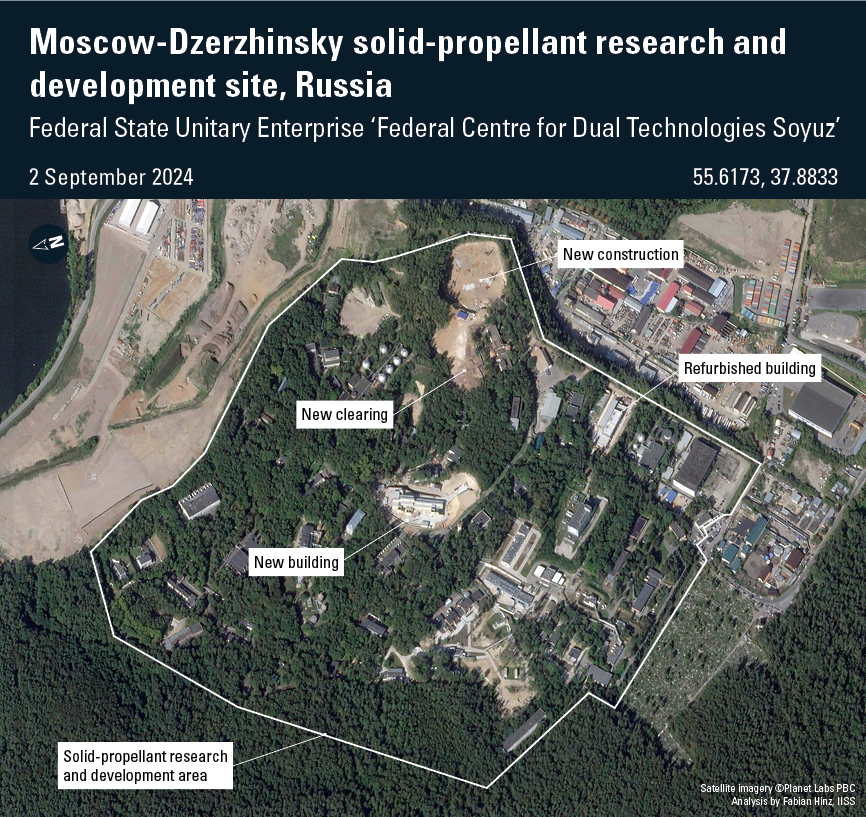
Additionally, the Federal Center of Dual Technologies Soyuz, located in Dzerzhinsk, Moscow Region, has been expanding its facilities. Specialized in solid rocket fuel and engines, this enterprise has been a vital player in the production of Topol-M, Yars, and Bulava ICBMs. It has also contributed to the production of Iskander SRBMs and Smerch MRLS systems.
In 2023, its director, Yuriy Milekhin, was awarded the title of "Hero of Labor of the russian federation" by Vladimir Putin.
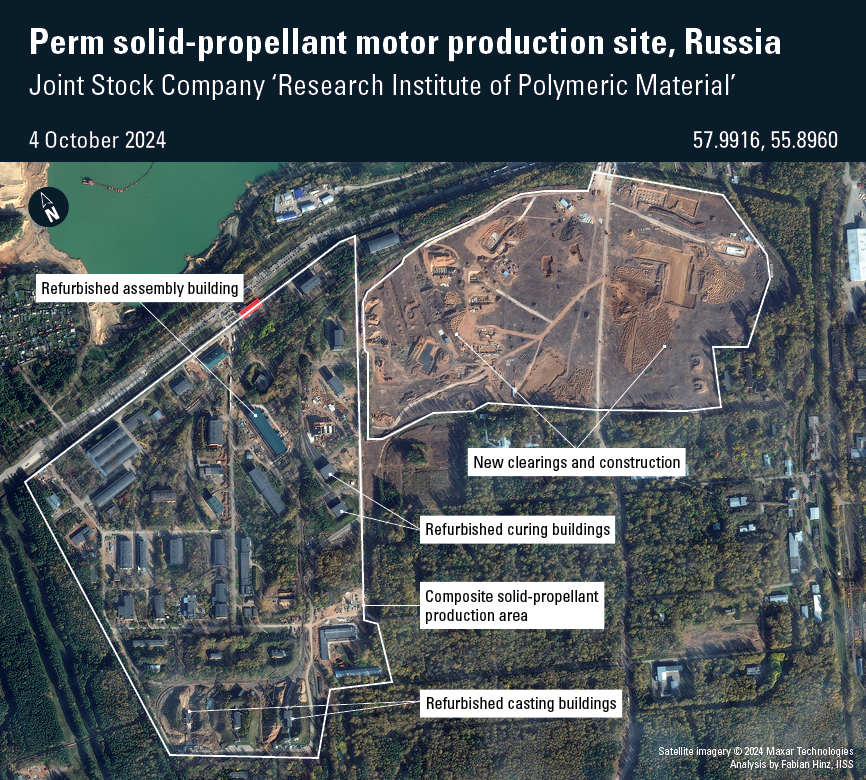
Other noteworthy sites include the NII Polimernykh Materialov in Perm, responsible for post-boost vehicle motors for Topol systems, and the Morozovsky Zavod in Shlisselburg, Leningrad Region, which manufactures engines for the Topol-M and Iskander rockets.
However, the operational status of the Anozit plant in Novosibirsk, a producer of ammonium perchlorate (a critical oxidizer for rocket fuel), remains unclear.
This pattern of activity strongly suggests that russia is ramping up its missile production capabilities, likely aiming to lessen reliance on external suppliers such as North Korea.
The full article by IISS is available here.
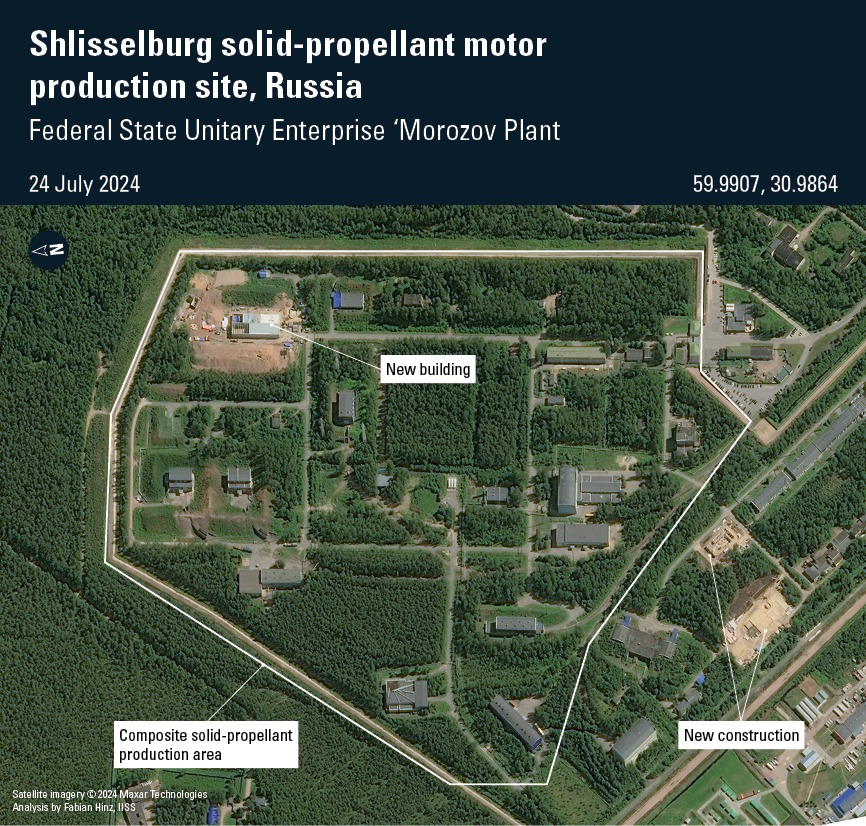
Read more: Despite $5 Billion Investments, russian Admiral Nakhimov Nuclear Cruiser Still Cannot Escape Perpetual Repairs



